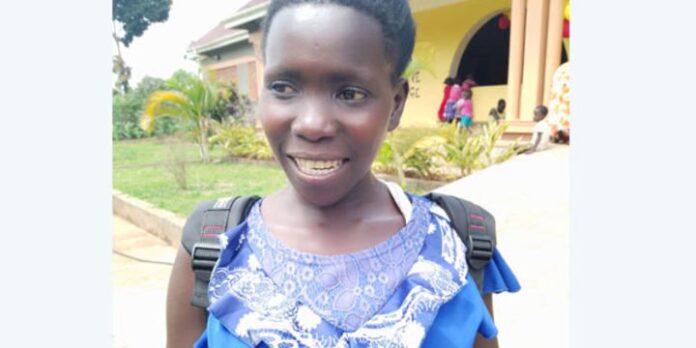BY JANE NAFULA,
What you need to know:
Her dream of becoming a teacher was shuttered when the cruel hand of death snatched both her parents while she was in Primary Six at Bussi Modern Primary School in Wakiso.
Ms Mary Nakaweesi, 18, is an orphan and a single mother of two, who is with a physical disability.
She currently lives with her elderly step mother in Bukaswa Village, Wakiso District on Bussi Island.
Her dream of becoming a teacher was shuttered when the cruel hand of death snatched both her parents while she was in Primary Six at Bussi Modern Primary School in Wakiso.
“I had to give up on studies to fend for myself and my siblings,” Nakaweesi recounts.
The only capital Nakaweesi had was a hoe. She says she used to dig for people at a fee to fend for her family.
She later relocated to Mpigi District where she worked as a maid for six months. Her monthly pay was Shs30,000 but she later returned home due to inconsistent pay.
It was from here that a peasant farmer from her village took advantage of her situation and made her pregnant.
“I was 15 years. He had promised to marry me. I now have two children with him but I still stay home. I don’t know whether he is ashamed of my disability,” Nakaweesi says.
Despite the challenges, her hope for a bright future is still alive. She is among the young people with disabilities in Bussi Island, who were recently selected by Mukisa Foundation, to undergo vocational training.
“I’m going to study tailoring. When I complete my course, I’m sure, I will be able to work and take care of my two children and three siblings,” she says.
The director of Mukisa Foundation, a non-governmental organisation, Ms Florence Namaganda, says if supported, children with disability can live purposeful lives and fulfil their potential.
“We have vocational training institutes, where we train them in tailoring, farming and catering. We also get children who have never been to school or dropped out of school because of their disability and train them in a way that they can learn. We believe that every child can learn,” Ms Namaganda says.
Once a child is at a school-going level, they are enrolled in the selected mainstream primary schools where the organisation pays half of their school fees.
The teachers in these schools also receive special needs training.
Under the programme, parents and guardians of these children are given start-up capital such as cows, goats and pigs and are trained in income-generating activities such as candle and soap making.
The Bussi Sub-county councillor, Mr Sulaiman Ssenkubuge, says lack of special needs teachers equally contributes to school dropouts.
Mr Ssenkubuge says children have to trek to the neighbouring Bussi Island where six primary schools and a Seed school were constructed.
“It is hard for a child to move on a wheelchair as he or she travels from one island to another in search of education because transport alone is a big barrier. Education services should be brought closer to these children,” Mr Ssenkubuge says.
The Executive Director of Uganda Child Rights NGO Network, Mr Damon Kamese, says only one in every 10 children with autism in Uganda has access to some form of education.
He says this is a gross deprivation of their right to education.
Recently, members of the Autism in Focus Alliance asked government to prioritise the education of children with disabilities.
The Alliance chairperson, Mr Andrew Agassi, says most special needs schools in Uganda are private yet most parents cannot afford the exorbitant school fees.
“There are children who end up in regular schools, but they eventually dropout because teachers are ignorant of the differences,” Mr Agassi says.
Although the Ministry of Education promotes inclusive education, most schools lack special needs teachers.
Statistics
Statistics from the Ministry of Education and Sports indicate that of the 23 percent of children with disabilities who are enrolled in Primary One every year, only 10 percent complete Primary Seven.
And of the 10 percent who complete the primary school cycle, only 1.5 percent complete Senior Four and only 0.5 percent complete Senior Six.
This is attributed to challenges such as long distances, lack of scholastic materials and school fees, stigma associated with disability and sexual abuse, among others.
According to the Uganda National Bureau of Statistics, about three million children in Uganda have disabilities.


